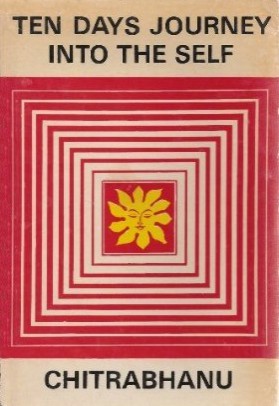Let the creative force of Love act through me
Meditation is purification. We have to distill our essence, which is pure. In meditation, we get rid of the mud, the pollution, and distill pure energy of Light, of Love.
To meditate is to purify, to distill the divinity with-in, the active divinity. Natural water is not muddy, polluted, contaminated --- such impurities come from the soil of the banks, and from the factories on the shores. The unclean water does not clearly reflect the sun, the blue sky, the green trees, the flowers on the bank; and it may poison the fish, the frogs, and also the people who drink it. In the same way, man's essence can become perverted through his exposure to the world. And then he unwittingly contributes to the pollution and perversion.
When we start the practice of meditation, in the first stage each is called an aspirant, in Sanskrit, a Sadhak, which means, "not complacent". As aspirants, we know we are not what we could be. For most of us, the purification that takes place during meditation, even the experience of bliss and in- inspiration, may not be too long in coming. But the purification of a life span, which means building and rebuilding our lives according to what we discover in our meditation will take arduous effort.
We are here on a long journey, to share the road to immortality with all living beings. There are many names for the goal--immortality, evolution, salvation or moksha which means liberation. In other terms the goal may be "to get the most out of life". But we will not get the most out of life without discovering our divinity through meditation. And the discovery of our divinity must lead to our finding our mission in life, which means giving up the mundane, going beyond merely making profits and acquiring possessions, beyond identification with our role in buying and selling, beyond our cultivating ease and indolence. We must experience our attunement with all men, even with all living beings, with nature, with the Cosmos. And this attunement implies not only joy but responsibility, the responsibility which compassion engenders.
What I have been fortunate in experiencing and practicing, bit by bit, I shall explain to you, so you can move in a similar direction. Many years ago, on a long retreat on Mount Abu, in solitude and silence and meditation, I sought the answer to the question, "What are the minimum virtues necessary for anyone if he is to rightly think of himself as an enlightened person?" The answer that came to me was the four virtues taught by Mahavir, which I put into words and music in what I have called "The Immortal Song". It begins, "May the sacred stream of amity flow forever in my heart, May the universe prosper; such is my cherished desire."
First, let us concentrate on amity---and then, later, you will glide into meditation. In concentration, there is harmony between observer and object. The subject observes the object, but there is complete unity between subject and object.
In meditation you are in a state in which you have entered the center of energy. You are one with Reality. You have gone beyond subject and object, beyond mind.
Amity is the first criterion of love. God is merely an image, the symbol of love. Personified love is called God. Love energy is God in action: to realize God, you have to give love, to be love. Without love, God is not present. The presence of love is the presence of God. Without amity, goodwill, there is no love. With any trace of fear, hate, resentment, possessiveness, indifference, self-centeredness, love is polluted.
Let us still concentrate on amity. Each of us must realize that if the sacred stream of amity is flowing in our hearts, we will wish the whole universe to prosper. We must each know that our love is not to be confined to ourselves, our families, our nations, but must include the whole planet. And if we genuinely wish the planet to prosper, we must do more than wish. If we want the planet to prosper, we must actively contribute to this planetary prosperity, rather than to the planetary drought and erosion which result from egocentric competition, or from withdrawal or indifference. In English, the word "I" is written in capitals, but it is the word "WE" that should be written in capitals. And the WE should be as big as the universe. It should be a WE based on goodwill.
We use the word "love" so often, but we must come to know in practice the power of love. People are starving in the world --- do you love them? Year after year, children are being bombed in wars --- do you love them? Do you genuinely search for the roots, in this technologically advanced society, of starvation and violence? Do you love your neighbors, your black neighbor, your yellow neighbor, your red neighbor, your neighbor who has had less opportunity for education, and who has been in other ways less fortunate than you? Christ defined the requirements of amity: "Whatsoever ye would that other men should do to you, do ye even so to them.'' Has this message led you to practice amity?
We visualize love incarnated as Mahavir or Buddha. They were in the past. Others will be in the future. WE are in the present. Let each of us experience, "What the prophets knew within themselves, I find within myself. I incarnate the power of love." This is spiritual democracy. It is our birthright. We cannot be happy, cannot have the ''kingdom of heaven" within or without, unless we live in this understanding of our perfection.
We need to contribute amity in our homes, and in our relationships with our associates. Our children need amity. Husbands and wives need amity between them. Neighbors need amity. People on the highway and on the subway and on the street need our amity. But with daily frustrations, amity is difficult to maintain. In dealing with those who oppose us our amity needs to be kindled so that conflicts can be resolved without violence. Differences in ideologies call for the humblest amity, so that they can be resolved by dialogue. Amity means peace and goodwill --- for all the citizens of this planet.
Not all trees are vast banyans. Yet a grove, or forest of smaller trees, can give more shade than the greatest banyan. And small trees also are always essential. At the edge of the desert, a poor family whom I knew had to bring water from a distance. Even so they kept a supply to give half a glass to any thirsty traveler. This small gift made them happy, and those who received it happy. Amity, reverence for life, is everyone's privilege, and the more we cultivate it, the greater the spiritual prosperity we will enjoy and share. This spiritual prosperity of caring and sharing will enrich us more than any material prosperity.
As a single banyan cannot give us the oxygen we need in order to live, no single savior or messiah can really build world brotherhood, world unity. That will take all of us together.
Amity can fill every cell of your body. Thus your body becomes a temple of amity. You are transformed! If any obstacle comes in the way, if something unworthy enters the temple, it is the intrusion of ego.... Let it go. If you do not pay attention to it, it will have no energy. Unless you let it occupy your thoughts, and take over your energy, it will have no role. Let it pass. Let the flow of love and beauty wash it away. Know that the stream of amity will forever wash away evil.
Now you can enter meditation by concentrating on the idea, "Let the creative force of Love act through me."
THOUGHTS
- We shall not get the most out of life until we discover our own divinity and attunement with all living things. In meditation, we enter the center of energy. If ego or unworthy thoughts intrude in this temple, pay no attention, give them no energy and they will pass by like shadows.
- May the stream of amity or goodwill flow from us to the whole planet until we become personified love.
 Gurudev Chitrabhanu
Gurudev Chitrabhanu
